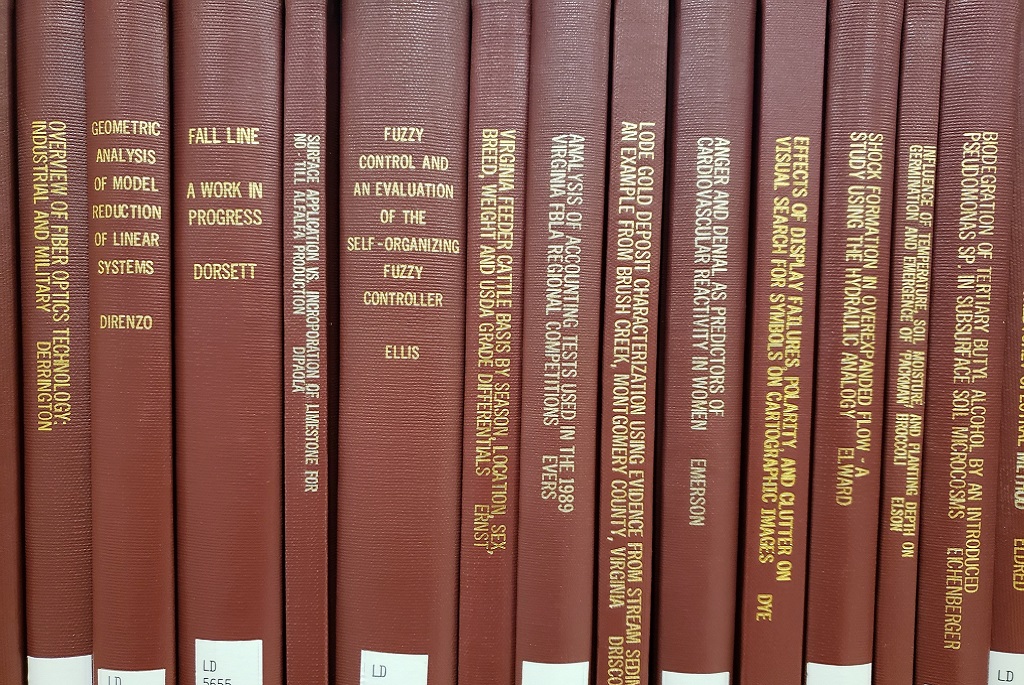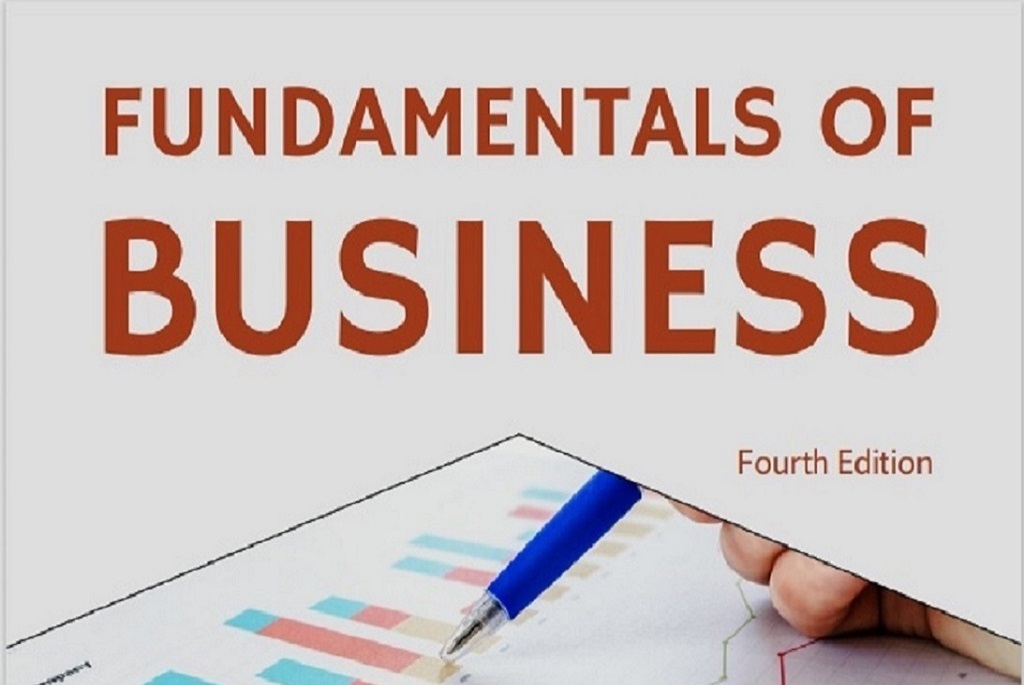VTechWorks
VTechWorks provides global access to Virginia Tech scholarship, including journal articles, books, theses, dissertations, conference papers, slide presentations, technical reports, working papers, administrative documents, videos, images, and more by faculty, students, and staff. Faculty can deposit items to VTechWorks from Elements, including journal articles covered by the University open access policy. Email vtechworks@vt.edu for help.
Communities in VTechWorks
Select a community to browse its collections.
Recent Submissions
A tool to address barriers in perinatal mental health screening, the PMH Connect: a perinatal mental health screening connection, education, and decision aid
Moyer, Sara Wagner; Nunziato, Jaclyn D.; Karjane, Nicole W.; Rivera, Alexis I.; Wisner, Katherine L.; Salisbury, Amy L.; Kinser, Patricia A. (Frontiers, 2026-02-02)
Mental disturbances and related symptoms in the perinatal period present a challenge to patients and providers alike, particularly regarding identification and appropriate management. Perinatal Mental Health (PMH) screening occurs in clinical settings on a more regular basis thanks to guidelines recommending the use of validated screening measures used at perinatal visits. However, patients report several concerns when completing these screeners and providers report barriers in addressing the results. To address barriers and enhance the PMH screening experience, our team of clinicians and researchers propose a tool – the PMH Connect: a Perinatal Mental Health Screening Connection, Education, and Decision Aid – to be given to the patient at the same time as a PMH screener. The PMH Connect provides brief anticipatory guidance about PMH symptoms, normalizing trauma-informed language about prevalence, and provides a connection to resources in a supportive, unobtrusive manner. PMH Connect helps patients feel heard and supported and provides resources before patients need them, which decreases the burden on patients and providers alike. Inspired by the Cycle to Respectful Care framework, PMH Connect is designed to shift power to patients themselves, as valued experts on their own care team, by offering them connections to information and resources through this simple tool. Our hope is that PMH Connect will bridge many of the barriers to effective PMH screening, assessment, and treatment by improving patients’ experiences and outcomes with the ultimate goal of optimizing screening effectiveness and care connection to improve maternal and infant health.
A Community-Based Trauma-Informed Care Curriculum on Women's Health for Third-Year Medical Students
Nunziato, Jaclyn; Lessard, Chloe; Karp, Natalie; Lane, Heidi; Locklear, Tonja; Simcox, Kimberly (Association of American Medical Colleges, 2026-01)
Introduction: Trauma affects 90% of individuals and has profound impacts on health, making it essential for medical trainees to recognize its effects. Trauma-informed care (TIC) offers a framework for developing these skills. Despite its importance, no TIC curriculum integrates community feedback into its design. To address this gap, we developed a 4-hour TIC curriculum that incorporates community insight, clinical expertise, and practical communication training.
Methods: The curriculum design followed community-based participatory research principles, engaging community members as contributors. The training included a dynamic combination of didactic lectures, video demonstrations, small-group role-play, and an OSCE, supported by a novel TIC toolkit. Community partners were trained as standardized patients (SPs). We assessed student outcomes through pre- and postsession surveys, employing 5-point Likert scales and open-ended responses. Additionally, a custom assessment tool was developed to evaluate OSCE performance, with SPs providing structured feedback.
Results: Thirty-four third-year medical students participated, with 100% survey completion. Quantitative analysis revealed significant increases in students' understanding of TIC principles and confidence in applying them from pre- to postsession (p < .05 for all metrics). Students demonstrated strong performance on the OSCE, achieving a mean OSCE performance score of 31.4/38 (or overall score of 82.6%). SP feedback highlighted the students' ability to engage empathetically and effectively in trauma-sensitive encounters.
Discussion: This novel TIC curriculum on women's health demonstrates a successful, scalable model for integrating TIC training into medical education. By embedding community voices and combining evidence-based principles with experiential learning, this program addresses educational gaps in TIC medical education.
Impact of obesity on the perinatal vaginal environment and bacterial microbiome: effects on birth outcomes
Ingram, Kelly; Eko, Embelle Ngalame; Nunziato, Jaclyn; Ahrens, Monica; Howell, Brittany (Microbiology Society, 2024-08)
Introduction. Lactobacillus species predominate the human vagina and are associated with positive vaginal health, including an acidic pH (<4.5). The prevalence of vaginal Lactobacilli increases with increased oestrogen due to increased glycogen production within the vagina. Lactobacilli produce lactic acid, thereby lowering vaginal pH, preventing growth of other bacteria, and lowering microbial diversity. Lower placental oestrogen levels in obese pregnant women could dampen the mechanism to initiate this process, which may be associated with vaginal dysbiosis and unfavourable pregnancy outcomes. Hypothesis. We hypothesize that oestrogen and glycogen levels will be lower, vaginal pH will be higher, and vaginal microbiome diversity will be greater during pregnancy in obese and overweight women compared to healthy weight women. Aim. Pregnancy complications (e.g. preterm birth) are more common in overweight and obese women. If vaginal dysbiosis plays a role, and quantifiable predictors of this increased risk can be determined, these measures could be used to prospectively identify women at risk for pregnancy complications early in pregnancy. Methodology. Vaginal samples were collected at 10–14, 18–24, 26–30, and 34–37 weeks gestation and at delivery from 67 pregnant participants (23 healthy weight, 22 overweight, 22 obese). A blood sample to quantify serum oestrogen was collected at 10–14 weeks. Vaginal samples were collected to test vaginal pH using pH paper, glycogen abundance using fluorometry, and the vaginal microbiome using 16S rRNA amplicon sequencing. Results. Vaginal pH was higher in obese participants compared to healthy weight participants (P=<0.001). Vaginal glycogen levels increased over time in obese participants (P=0.033). The vaginal bacterial alpha diversity was higher in obese participants compared to healthy weight participants (P=0.033). The relative abundances of Peptoniphilus and Anaerococcus were increased in overweight and obese participants, as well as in complicated pregnancies, at 10–14 weeks gestation. Conclusion. The relative abundance of specific vaginal bacteria, like Peptoniphilus and Anaerococcus, in early pregnancy could predict pregnancy outcomes. Our goal is to use the information gathered in this pilot study to further determine the feasibility of assessing the vaginal environment during pregnancy to identify women at risk for negative pregnancy and birth outcomes in the context of a larger study.
Modular Coaxial Power Converter for High-Density Integration into Medium-Voltage Cables
Cairnie, Mark; Kamalapur, Aakash; Nassar, Rajaie; Knoll, Jack; Yuchi, Qingrui; Bae, Jung-Soo; DiMarino, Christina; Ngo, Khai; Lu, Guo-Quan; Li, Qiang; Boroyevich, Dushan; Zhou, Jierui; Cao, Yang; DeVoto, Douglas; Kekelia, Bidzina (2024-06)
This work proposes to combine the functionality benefits of power electronics with the power density benefits of medium-voltage cables to create a streamlined, high-density power electronics solution that seamlessly integrates with medium-voltage cables. Located at the ends of a medium- or high-voltage line, the proposed converter uses a cascade of coaxial power conversion cells to gradually step down the voltage, and excels in high step-down applications. By mimicking the coaxial geometry of medium-voltage cables, the converter preserves the axisymmetric electric field of the cable which, when combined with a solid insulating dielectric, provides a voltage scaling advantage over conventional planar and PCB-based converter solutions. Similar to medium voltage cables, the converter is fully passively cooled. A passive cooling strategy allows for combined installation with existing medium voltage cable systems without the added cost, maintenance needs, infrastructure, and reliability concerns associated with active cooling systems. The scalability of the modular structure in combination with the integration benefits provide a flexible power electronics system that can adapt to the evolving demands of the grid.
Coaxial Gate/Kelvin Interconnects for Reduced Gate Loop Inductance and Common Source Mutual Inductance in Power Semiconductor Packages
Knoll, Jack; Cairnie, Mark; Dimarino, Christina (IEEE, 2026-02-18)
A coaxial gate/kelvin interconnect is proposed to limit gate loop inductance in vertical package structures. While low-inductance solutions have been demonstrated for planar packages, existing interconnects for vertical package structures result in high inductance per unit length. The coaxial gate/kelvin interconnect proposed here has been shown to reduce per-unit length gate-loop inductances in vertical package structures by 50% or more, enabling more advanced vertical package structures. The proposed on-chip coaxial interconnect also results in significant decoupling between the gate and power loops, enabling faster switching and better control of parallel die. This paper explores several materials and techniques for implementing coaxial interconnects. The resultant electrical characteristics, bond strengths, and viability of these approaches were evaluated. A solution for limiting mechanical stress in the bond between the die and the coaxial interconnects due to mechanical loading on the unbonded end was developed. To demonstrate the viability of the proposed interconnect solution, a package prototype which includes coaxial gate/kelvin interconnects was fabricated and characterized.


